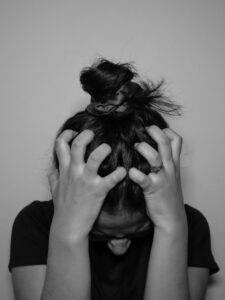 According to one Irish Proverb, a good laugh and a long sleep are the best cures in the doctor’s book. Laughter does indeed affect our physical and mental well-being. However, outside of breathing and drinking water, nothing is more essential to our overall functioning than sleep. Whereas someone can be without food for several days before starving to death, going without sleep for more than 48 hours will make the toughest of insomniacs crash. They won’t die, but they’ll start to slur their speech, hallucinate, and fall in and out of mini-slumbers every fifteen seconds or so.
According to one Irish Proverb, a good laugh and a long sleep are the best cures in the doctor’s book. Laughter does indeed affect our physical and mental well-being. However, outside of breathing and drinking water, nothing is more essential to our overall functioning than sleep. Whereas someone can be without food for several days before starving to death, going without sleep for more than 48 hours will make the toughest of insomniacs crash. They won’t die, but they’ll start to slur their speech, hallucinate, and fall in and out of mini-slumbers every fifteen seconds or so.
That’s because sleep is responsible for so many of our vital functions. From our cognitive abilities, like problem-solving and memory, to immune function and DNA repair, sleep is responsible for how our bodies operate daily. Neurotransmitters replenish during sleep, and the stores of our vital energy molecule ATP build up for another day’s use. Wounds heal and muscles repair during sleep, and people who get regular and adequate amounts perform better in their daily lives, having less pain, tension, and stress than those who consistently miss a good night’s rest.
Missing even a little bit of sleep nightly can enormously impact our health. Sleep’s effects are cumulative, so consistently getting less than we need determines how we perform at work, our mental sharpness, and our ability to heal. Deprivation makes us more susceptible to illness and injury, so if you are injury-prone or find yourself sick a lot, then several good nights’ rest is precisely what you need to turn it around.
Going into every benefit of sleep (yes, there’s more!) would be exhaustive for this type of article. But I can instead discuss the most common side effects I see in my practice of those who get inadequate sleep. The three most common things I see are increased colds/flu, increased fatigue and moodiness, and decreased healing.
Increased Infections
The first – increased colds and flu – is due to the depression of the immune system. Studies have shown such a strong correlation between sleep and immunity that our national space program has studied the effects of sleep deprivation on the development and transmission of infectious diseases. In my practice people who are most often sick burn the midnight oil frequently. No judgment here – we all push ourselves to the limit now and again – but when I find out a client is sick, nine times out of ten, they also admit to being physically worn out.
Increased Moodiness
 The next most common thing I see in people not getting enough sleep is increased fatigue and moodiness. I understand that increased sleepiness might seem obvious, but I also know many people who mostly get enough sleep and think that losing an hour here or there doesn’t really matter. Unfortunately, losing even a little sleep adds up, and the effects can creep on you subtly. REM sleep is essential to cognitive and memory function, so deprivation can lead to mental sluggishness, decreased complex problem-solving abilities, and impairment of even routine tasks such as driving, using machinery, or handling tools. Studies on college students have shown that those who pull “all-nighters” consistently demonstrate poorer test scores than their well-rested counterparts. If you are trying to learn a new skill you will retain much more if you’re well rested.
The next most common thing I see in people not getting enough sleep is increased fatigue and moodiness. I understand that increased sleepiness might seem obvious, but I also know many people who mostly get enough sleep and think that losing an hour here or there doesn’t really matter. Unfortunately, losing even a little sleep adds up, and the effects can creep on you subtly. REM sleep is essential to cognitive and memory function, so deprivation can lead to mental sluggishness, decreased complex problem-solving abilities, and impairment of even routine tasks such as driving, using machinery, or handling tools. Studies on college students have shown that those who pull “all-nighters” consistently demonstrate poorer test scores than their well-rested counterparts. If you are trying to learn a new skill you will retain much more if you’re well rested.
As far as moodiness goes, it isn’t a big surprise: people who lack sleep have a harder time tolerating challenges. Even the most mundane elements of life, like other people, traffic, or poor service – the stuff we all put up with from time to time – can become sources of stress. But worse yet, since sleep is when our vital neurotransmitters replenish, chronically tired people have higher rates of depression. Studies have shown that people getting less than adequate sleep have greater irritability and frustration and a decreased ability to modulate their mood.
Decreased Healing
One of the key observations I’ve made with clients who lack sleep is a slower rate of healing. These individuals often experience a delayed response to chiropractic treatments, which can be disheartening. The crux of the matter is that adequate rest is crucial for the healing process. During sleep, our bodies generate new cells and replace damaged ones. While our body’s regenerative processes are always ongoing, they are significantly accelerated during deep sleep.
For those who exercise regularly, sufficient sleep is not just a luxury, but a necessity. Exercising without getting enough rest can hinder muscle growth and increase the risk of rhabdomyolysis, a condition where one’s own muscle tissue breaks down. In essence, not getting enough sleep can undermine the very purpose of exercising. So, it’s better to prioritize rest over exercise for the sake of your overall health and wellness.
How Do You Know?
 Here is the final question: how much sleep is enough? The unsatisfying answer is that it depends on the individual. Some people can get by with six hours of sleep, some with four, but that’s rare. Most people need between eight and nine hours per night. The good news is that you know when you haven’t had enough sleep.
Here is the final question: how much sleep is enough? The unsatisfying answer is that it depends on the individual. Some people can get by with six hours of sleep, some with four, but that’s rare. Most people need between eight and nine hours per night. The good news is that you know when you haven’t had enough sleep.
Our bodies have an internal mechanism that tells us when we are tired. Most of the disorders I have just mentioned are also part of that mechanism. It’s our body’s way of telling us we need more rest! However, we can ignore these signals enough over time to lose touch with them. I suspect that is what happens with people who chronically under-sleep; they have lost their attunement to their body’s signals. Fortunately, we can regain the connection. So don’t ignore the warning signs – get some sleep! You’ll be better able to conquer the world if you do, or at least conquer that project due tomorrow morning.
And now I must get some sleep….
*Next month’s article will be Part Two of the sleep series. We’ll discuss mattresses, pillows, and the fallacy of proper sleeping positions.
– Originally published on March 5, 2007

